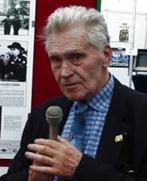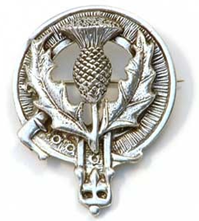|
The tune
is listed as both Lament for Jef Ar Penven and Lament
for Lef Le Penven. Jef Le Penven (3 November 1919 -
30 April 1967) was a French composer, born in Pontivy, Morbihan,
Brittany. Le Penven was the twelfth child of a family of
cabinet makers. He was brought up in an atmosphere of
traditional vernacular music, learning to play the bombard
(Breton flute) as a child. He studied at the Schola Cantorum in
Paris, working with Marcel Dupré.
In 1940, he became the conductor or the Orchestre de
Bretagne. Le Penven's music expresses his attachment to
Brittany and Celtic culture. He attempts to integrate
traditional and symphonic music. His major works use
conventional symphonic and choral forms but typically include
bagpipe music.

The composer and folklorist, Polig Monjarret (1920 -
2003), led the introduction of the GHB to Brittany during the
Celtic revival of the 1920s Breton folk music scene.
Though unknown to most Highland
pipers, Monjarret is directly responsible for saving Breton pipe
music and for establishing the Breton "bagad" pipe band concept
in the 1940s A bagad
pipe band
incorporates a biniou braz section, a bombarde section, a drums
section, and in recent years almost any added grouping of wind
instruments. Well know bagad groups include Bagad Brieg, Bagad
Kemper, and Bagad Cap Caval. In Britanny, the GHB is known as
the biniou braz, in contrast to the biniou kozh, the small
traditional Breton bagpipe.
Monjarret
collected over 3,000 traditional compositions during the
occupation of France from 1940-'45. At that time, Breton pipe
music was on the verge of extinction. It was Monjarret who
realized that, if the music was to survive, it would have to
adopt elements of the Scottish-style pipe band. Monjarret's
solution was the "bagad," a unique ensemble of Highland pipes,
pipe band drums and Breton bombardes. He was a founder of the
Breton Pipe Band Association (BAS), which today is directly
responsible for training generations of bagad band members, and
traditional pipers playing in the "sonneurs de couple" duo
format. Monjarret published a collection of music, and a second
volume was unveiled in the summer of 2003 at the Interceltic
Music Festival in Lorient. Hundreds attended Monjarret's
funeral, where the famous Breton piper Patrick Molard played the
Uillean pipes – an instrument Monjarret loved. His casket was
placed in the town square of Larmor Plage, where massed pipers
played "An Hini Garan," Monjarret's favorite Breton air.
Brittany, in western
France, is an ancient Celtic homeland whose language and music
are closely related to those of Wales and Cornwall. Breton
music is subtle when compared to Irish, Scottish, and Welsh
music, with complex rhythms, rich harmonies, and spin-on-a-dime
call-and-response refrains. The venerable Irish sextet seems
refreshed and exhilarated by the cross-pollination. |



